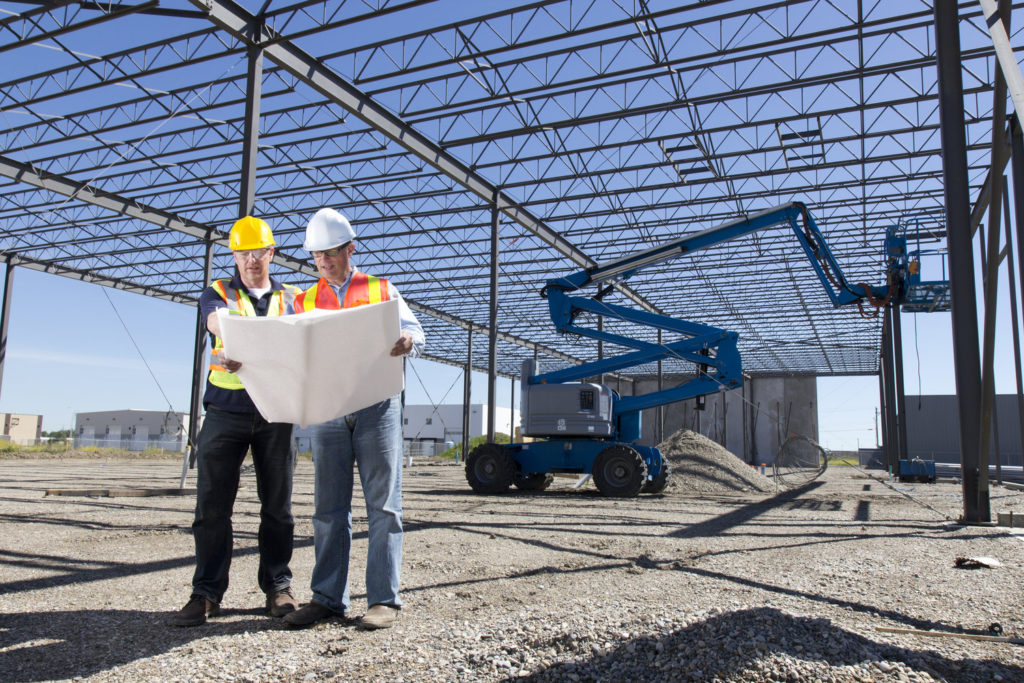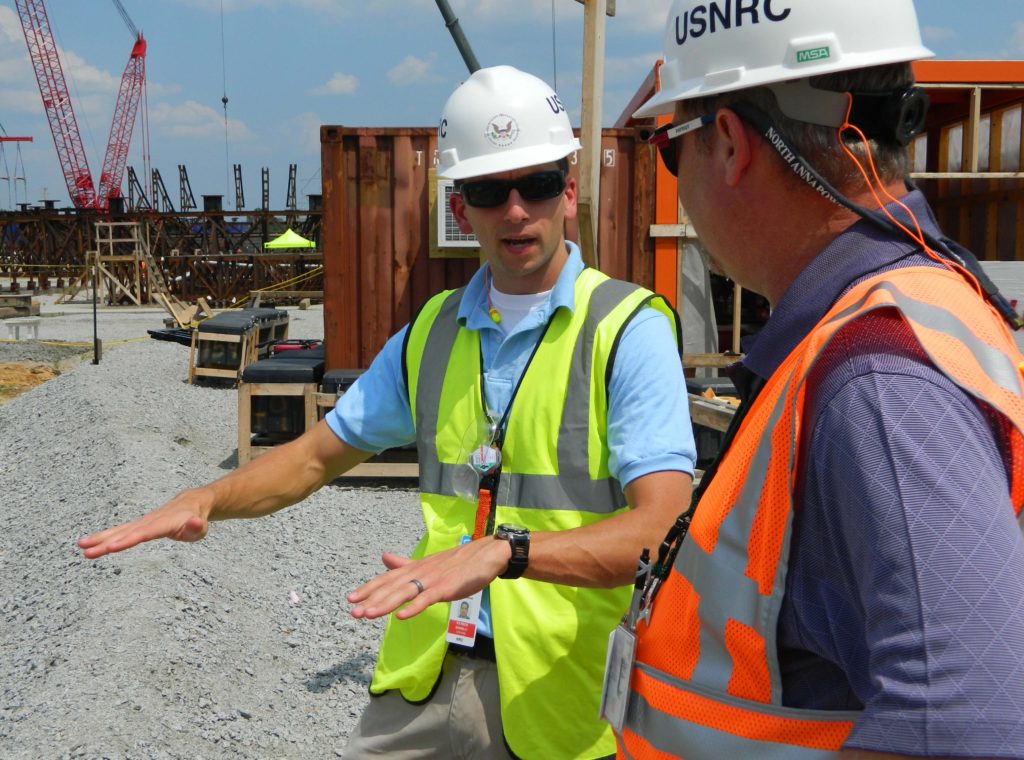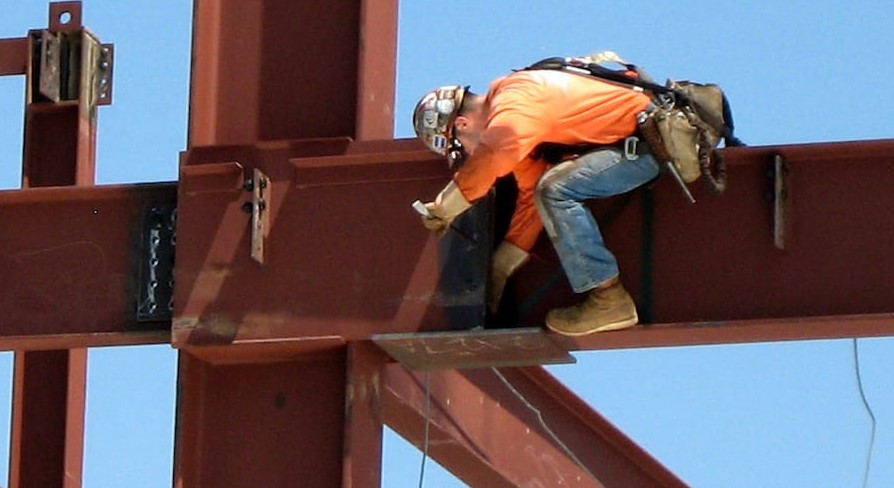How to Become a Special Inspector In Construction

A Special Inspector and Contractor review plans on a construction site.
If you’re wondering how to become a a Special Inspector, you might think this is a role reserved for employees of city, county or local government. However, there’s a large segment of the construction industry that delivers inspection services from within the private sector.
Special Inspections are well-defined in the building code. Typically, they’re delivered by professional inspectors characterized by a deep knowledge of materials and strong understanding of construction techniques. This is coupled with a commitment to time on projects that individual building departments would be unable to service.
Such inspections usually include concrete, structural steel, masonry and wood framing. The inspections are primarily focused on the shell and core construction of industrial and commercial projects.
To become or be a special Inspector requires integrity, honesty and strong moral fiber. Special inspectors, and the inspection agencies that hire them are considered professional consultants in their field. They must operate collaboratively with contractors and the design professionals of record (civil/structural engineers and architects) on a wide range of commercial, residential, public and industrial projects. Irrespective of the type of project, their role is to ensure that the work they inspect conforms not only to the approved blueprints, but also to the relevant building codes. A special Inspector’s competence is gauged largely by the certifications they’ve earned through both course work instruction, examinations based on national building-code, and interviews by building officials.
On a daily basis, an inspection agency will allocate one or more construction projects for an inspector to manage, based on their expertise and the required certifications and abilities. Inspectors frequently operate under tight deadlines, navigating between multiple jobsites to observe and inspect specific construction milestones. As part of his/her brief the special inspector must test materials, obtain material samples and deliver detailed and accurate reports to the contractor following each visit. Typically, Inspectors work independently but must adhere to the strict standards and protocols set by the inspection agency, applicable building code and the agency’s accreditation body. Some agencies may also have Field Supervisors, a Supervising Laboratory Technician and a Technical Director whose joint responsibility is to ensure the necessary standards are met and to provide guidance to inspectors in the field.
To become a Special Inspector, you’ll require these 4 key traits:
- Professionalism: Reliability, being punctual and being professional in your appearance is vital if the Special Inspector is to garner the respect of project owners, contractors and the design professionals of record.
- Communication: Inspectors must have a strong grasp of the English language. Comprehension and excellent writing skills are key in a world where highly technical language is the norm. Not all interactions with contractors will be friendly. Some may turn hostile. In these circumstances the inspector must also be able maintain his/her composure and communicate diplomatically with contractors when work does not meet the required standards.
- Attention to detail: Inspectors must be able to navigate plans and be familiar with applicable code in order to verify that work conforms to standards set by building code, engineer’s/architect’s plans and specifications. Often there are very strict tolerances coupled with time pressures. Regardless, inspectors have to perform testing with consistent accuracy, always without variation, as mandated by the test methods prescribed.
- Motivation and Discipline: Working as they do, without direct supervision, Inspectors must be focused and self-disciplined. Able to stay on task and to be thorough with their tests and inspections. Many of the required certifications must be periodically renewed. As such, the inspector must be motivated to engage in ongoing study programs and in the acquisition of knowledge both in the field and in the classroom.
You must be Certified to be a Special Inspector
 A critical part of becoming a special inspector is becoming certified in your areas of specialty. Certifications are usually directly tied to the earnings of a special inspector when hired by an Inspection Agency. Along these lines, some inspection agencies pay for testing fees, renewals, formal classes and books. Often, they’ll mandate employees attend classes, expand their skills and pass the examinations. The success of any inspection agency hinges upon being able to employ experienced, highly-motivated personnel. Personnel that are certified as Special Inspectors in fields of work they’re targeting.
A critical part of becoming a special inspector is becoming certified in your areas of specialty. Certifications are usually directly tied to the earnings of a special inspector when hired by an Inspection Agency. Along these lines, some inspection agencies pay for testing fees, renewals, formal classes and books. Often, they’ll mandate employees attend classes, expand their skills and pass the examinations. The success of any inspection agency hinges upon being able to employ experienced, highly-motivated personnel. Personnel that are certified as Special Inspectors in fields of work they’re targeting.
Usually, hiring cycles peak in late spring and early summer, coinciding with start of the busy summer construction season. Training programs and examinations are also often planned to prepare new candidates to this period of hiring. Applicants typically need to wait just one month before being able to sit the ACI Concrete Field-Testing Technician – Grade I certification exam. The NWCEL-sponsored Concrete Placement and Batch Plant will usually follow soon after. Certifications by the ICC are offered without any corresponding courses. The NWCEL offers courses designed to prepare inspectors to pass the ICC exams for Reinforced Concrete, Prestressed Concrete, Structural Steel and Bolting, Structural Welding, Structural Masonry and Spray-applied Fireproofing. NWCEL course work is mandated for Shotcrete and highly recommended for Lateral Framing. These courses are usually held once or twice per year. Following certification, a Special Inspector must earn considerable time in the field. Once this experience is accrued, a fully motivated inspector may be fully licensed within 3 to 5 years.
How to Become Concrete Construction Special Inspector
A Concrete Construction Special Inspector is a someone certified to inspect, observe and document the findings of concrete construction inspection according to codes, plans and project specifications. Inspections are carried out during preplacement, placement, and post-placement phases.
Typical course material and topics for a Concrete Construction Special Inspector may include:
- Reinforced Concrete Introduction
- The Components of Concrete
- Understanding the Application of Reinforcing Steel
- Concrete Durability
- Concrete Mixing & Placing
- Embedments & Formwork
- ASTMs Review
- Plan Reading for Reinforced Concrete
- The Concrete Manual
- Concrete Engineering
- Tolerances
- Loads & Strength Characteristics
- Fabrication
- Acceptance
- Placement
- Relevant Codes
- Best Practices in doing Inspections
- Navigating Plans
- Strategies for Testing
- Pearson Vue
Becoming a Special Inspector for Structural Masonry
The Structural Masonry Special Inspector’s responsibility is to enforce the details of construction defined in the approved specifications and plans for the structural masonry components of the building project. The special inspector must review the special inspections statement and approved plans/specifications, and ascertains that structural masonry materials and their placement, reinforcement, and grout are installed as illustrated and as stated in the approved specifications and plans. The special inspector responsibility also extends to collecting material samples and carrying out the required tests. The special inspector must also write and submit the required reports, which must include all and any items that don’t comply with the plans, to the contractor, the building official and/or the design professional of record.
Typical course outline and topics for Structural Masonry Special Inspector may include:
- Structural Masonry – an Introduction
- The Types of Masonry
- Grout and Mortar
- Grout Placement
- Reinforced Steel in Masonry
- Reinforcing Steel Specifications
- Construction and Layout
- Masonry Protection
- ASTMs Review
- Structural Plan Reading Overview
- Structural Masonry Plan Reading
- Plans Navigation
- Digital Plans Delivery Preparation
- Test-Taking Preparation
- Code/Plans Timed Tests
- Fundamentals
- Strength Characteristics
- Mortar/Grout Mechanics
- High-Lift Grouting
- Consolidation
- Acceptance
- Relevant Codes
- Testing
- Inspection Best Practices
- Structural Plans
- Plans Navigation
- Blueprint Commonalities
- Pearson Vue
- Testing Strategies
- Practice Tests
Becoming Qualified as a Special Inspector for Structural Steel and High-Strength Bolting
 A Structural Steel and Bolting Special Inspector’s responsibility is to ensure adherence to the details of construction defined in the approved specifications and plans for high‐strength bolting of any steel framing and the structural steel elements of a building project. The special inspector must review the special inspections required, the specifications and approved plans, and must verify that high‐strength bolting is installed in accordance with these plans and specifications. The special inspector’s responsibility also includes the collection of material samples and undertaking the specified tests. The special inspector must also write and submit the reports required following inspections. If there are any non-compliant items that don’t conform to the approved plans, the special inspector must also report these to the contractor, the building code official and/or the engineer/design professional of record.
A Structural Steel and Bolting Special Inspector’s responsibility is to ensure adherence to the details of construction defined in the approved specifications and plans for high‐strength bolting of any steel framing and the structural steel elements of a building project. The special inspector must review the special inspections required, the specifications and approved plans, and must verify that high‐strength bolting is installed in accordance with these plans and specifications. The special inspector’s responsibility also includes the collection of material samples and undertaking the specified tests. The special inspector must also write and submit the reports required following inspections. If there are any non-compliant items that don’t conform to the approved plans, the special inspector must also report these to the contractor, the building code official and/or the engineer/design professional of record.
Typical course outline and topics for a Structural Steel and Bolting Special Inspector may include:
- Introduction to Structural Steel
- Steel Shapes and Products
- Fastener Components
- Bolted Parts
- Joint Types
- Installation
- Inspection Procedures
- AISC 360 & AISC 341
- Arbitration
- Steel & Bolting Plan Reading
- Plans Navigation
- Digital Plans Delivery Preparation
- Test-Taking Preparation
- Code/Plans Timed Tests
- Framing
- Strength Characteristics
- High-Strength Bolting
- Snug Tight, Pre-tensioning
- Turn-of-the-Nut, DTIs, Twist-off
- Tolerances
- Inspection Best Practices
- Code Regulations
- Field Applications
- Plans Navigation
- Blueprint Commonalities
- Pearson Vue
- Testing Strategies
- Practice Tests
Becoming a Structural Welding Special Inspector – S2
To become a Structural Welding Special Inspector means passing one of the more difficult certifications – The International Code Council (ICC) Structural Welding Special Inspector- S2 certification. Special Inspectors in this field are responsible for seeing that approved welding of structural steel elements plans, and specifications are followed. In accordance with the approved plans and the specifications, the special inspector ascertains that welding has been performed correctly. The special inspector also samples materials and performs required tests. In addition, the inspector will be required to write and submit reports to the building official, contractor, and or design professional(s) of record with details of any non-conforming items. To qualify for this certification, candidates must already hold the S1 Certification for Structural Steel and Bolting. Candidates will be required to show their technical knowledge by achieving a pass in three written examinations: Structural Welding Special Inspector – S2P, The Special Inspector General Requirements Exam and the Structural Welding Special Inspector – S2C.
Course material and topics for a Structural Welding Special Inspector may include:
- Welding – An Introduction
- Types of Welds and Symbols
- Prequalified WPS
- Qualifying a WPS
- Qualifying Welding Personnel
- Fabrication Requirements
- Inspection Requirements
- Tubular Steel Welding
- Stud Welding
- Welding of Reinforcing Steel
- Welding of Sheet Steel
- Structural Welding Plan Reading
- Navigating Plans
- Delivery Preparation of Digital Plans
- Preparation for Test-Taking
- Timed Tests for Code/Plans
- Welding Design
- Fundamentals
- Welding Process
- Acceptance
- Welder Verification
- Tolerances
- Inspection Best Practices
- Base/Filler Metals
- Steel Shapes
- Code Requirements
- Rebar Welding
- Plans Navigation
- Blueprint Commonalities
- Pearson Vue
- Testing Strategies
- Practice Tests
Epoxy Anchor Special Inspections
Special Inspections are required for Epoxy Adhesive if specified by the design engineer, the manufacturer or required in the approved Evaluation Report. Prior to placement of Chemical Anchor Fasteners the Special Inspector must verify the Installation Details for the Epoxy Manufacturer as well as the Epoxy Type and the Expiration Date of the Epoxy (ICC/ESR numbers) As stated in the Approved Plans and Specifications.
The majority of chemical anchor fasteners are manufactured by Simpson’s and Hilti. Both manufacturers supply a range of High-Strength Epoxy adhesives specifically formulated for anchoring and doweling applications in both Masonry and Concrete construction.
Except in a few limited cases, the Engineer or City mandates that epoxy placement be monitored by a City-Approved Special Inspector. Such inspections may also be required in the Approved Plans, Specifications or in the Product’s ICBO.
All Epoxy Adhesives require Special Inspection except when used in the following applications –
- Sill plate anchor bolts where retrofitting into existing concrete where required in order to comply with the CBC’s conventional construction requirements.
- Where reinforcing steel dowels are adhered to minimize the differential settlement between existing and new foundations.
- Where holdown anchor bolts are adhered for Braced Wall Installations or for Alternate Braced Panel installations in situations where there are four (4) or less holdown anchor bolts on any wall line (where there are four wall lines (i.e. North, South, East and West elevations / building).
- Where holdown anchor bolts are adhered for Shear Wall. Specifically, where the engineer submits calculations showing the bolts to be subject to loads below 50% of those allowable for the anchor bolts.
